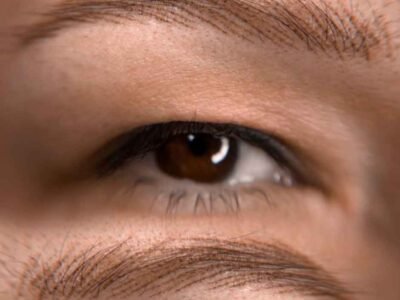Aging has numerous effects. The most noticeable effects of aging are usually on the skin. Your face, since you cover most other parts of your body, is the most exposed. Your face, therefore, will display most of the effects of aging. Some of the effects of aging can, however, be reversed to bring out your youthful self.
A facelift (rhytidectomy) is done by a plastic and cosmetic surgeon. All cosmetic surgeries have better outcomes than their non-surgical counterparts, such as botox and laser procedures. A facelift is a considerable investment for you, and you should therefore take care of it. A facelift does not last forever, but specific measures can help improve its longevity.
Types of Facelift Procedures
You may decide to undergo a full facelift or a mini-facelift. Your decision should be based on your budgetary considerations and your expected results. Your surgeon may also suggest what works best, and you should listen to the advice provided.
Thompson Facial Plastics offers a traditional facelift, deep plane lift, and mini facelift. A conventional facelift has more dramatic results and lasts longer when well taken care of properly. A deep plane lift is a complex procedure also with a surprising set of results. A mini facelift is less invasive and does more touch-ups to enhance your facial features.
How Long does a Facelift Last
A facelift reshapes the bottom half of your face by removing excess unnecessary facial skin. The procedure is used to:
- Tighten hanging skin along the jawline
- Remove deep creases around your nose and mouth
- Remove excess skin and fat under your chin and on your neck
- Enhance your forehead, brows, cheeks and your eyelids
The duration for which the results from your facelift lasts depends on several factors. Usually, the results can last for months or even years, depending on how you take care of your skin. A traditional facelift, for example, can last for decades, if not longer.
Maintaining Your Facelift Results
Seek Services from a Professional Surgeon
Even though a board-certified surgeon may be expensive, the services offered will be worthwhile. Always, when considering a facelift, seek the services of a board-certified plastic surgeon. A good surgeon is like an artist and will bring out the best of your facial features. A bad surgeon (unqualified) may have you looking worse than before the procedure.
Therefore, before allowing any doctor to modify or touch up your face, confirm that the doctor is qualified. Qualifications go a long way in ensuring that the facelift lasts for long.
Protect your Skin from the Sun
The sun’s rays are usually the primary cause of aging. Exposure to ultraviolet (UV) radiation, blue light, and Infrared radiation (IR) from the sun leads to the breakdown of vital proteins in the skin cells. Exposure to the sun causes the skin to develop dark spots. The exposure damages connective tissue under the skin (collagen and elastin) and may accelerate the development of wrinkles and saggy skin.
To take care of your skin, use sunscreen lotions and creams when going out, try and avoid deliberate tanning. A straw hat would also be beneficial when you are going out in the summer.
Taking Care of your Body
Essentially, taking care of your body involves having a good nutritious diet. Green leafy vegetables, fruits, complex carbohydrates, and meat help keep your skin looking young and refreshed. Staying hydrated is also crucial as it helps keep your skin elastic and youthful.
As you take on healthy, nutritious meals, you must avoid foods that would reverse your gains. These foods include excess dietary sugars such as soft fizzy drinks, unhealthy fats from fast foods, and bad cholesterol. Sugar changes anti-aging efforts. Sugar causes the glycation of molecules, and this leads to the damage of proteins and fats.
Stop Smoking and Binge Drinking
Nicotine use may not only delay healing after a successful facelift but also cause tissue death. Tobacco use also makes the skin dry and scaly and thus makes you age faster. After facelift surgery, chain-smoking would lower the lifeline for your facelift and cause irreversible damage.
Alcohol, especially from beers, is a rich source of carbohydrates. Your body converts this excess carbohydrate to fat cells (adipose tissue) and stores them. Therefore, binge drinking can reverse gains made from a facelift, especially if the procedure involves removing fat from the chin and the neck.
Non-Surgical Treatments
Even after undergoing a facelift, scheduling non-surgical procedures with your doctor can help improve the lifespan of your facelift. Filler treatments, laser treatment, botox injections, among many other non-invasive procedures, can help keep your skin young and elastic.
Medical Skin Care
Your surgeon may have an aesthetician on standby to help you take care of your skin better. Even in cases where you have an existing skincare routine, an aesthetician can help optimize your routine for optimal results. The aesthetician may also recommend a range of products to help your skin remain moist and smooth.
After a successful facelift, your surgeon is bound to offer some helpful insight on how to maintain your skin. Save yourself money and time by ensuring that you heed this advice. Do not use products that were not recommended for you or go out of your way to try and damage your skin actively.
Try some Facial Exercises
Whereas the science behind facial exercises may not be solid, any form of facial training has been known to slow aging. Facial exercises help keep facial muscles taut and elastic. A search on facial exercises will bring about many results on different activities that will tone your facial muscles. Remember also to smile often and avoid stressful situations, as these also help mitigate the effects of aging.
In conclusion, a facelift may last for up to a decade or more. The latter depends on how well you take care of your skin. Remember to keep your skin well hydrated and oiled (lotion helps). Also, consider seeking professional help on skincare routines and always follow your doctor’s advice.












